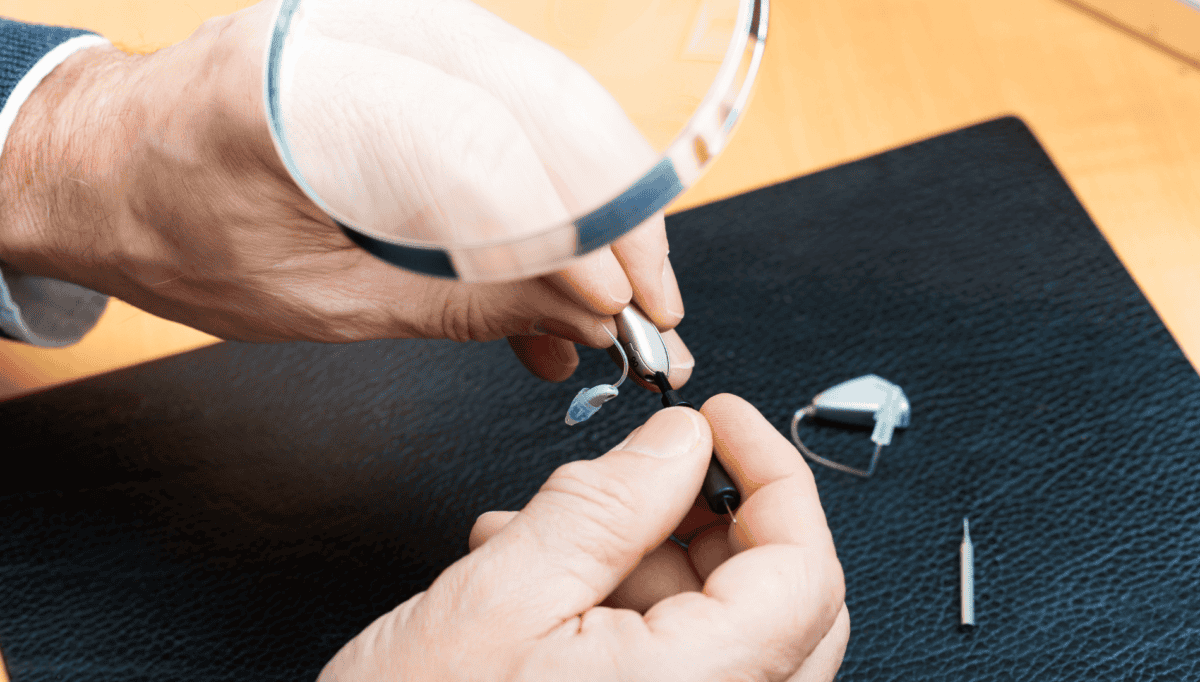- How to Maintain and Care for Your Hearing Aids - June 7, 2025
- Driving Tips for Hearing Aid Users - May 9, 2025
- Alcohol and Hearing Health - April 9, 2025
Hearing aids are critical devices for many people, helping them to experience the world of sound more fully. Proper maintenance and care can help ensure that they function optimally for a long time.
Regular Cleaning is Essential
One of the most important aspects of hearing aid maintenance is regular cleaning. Dust, earwax, and moisture can accumulate on and inside hearing aids, impacting their performance. Make it a habit to clean hearing aids daily to prevent build-up and ensure clear sound quality.
Use a soft, dry cloth to wipe down the hearing aids. This removes dust and other debris that may have settled on the surface. If necessary, use a small brush designed for hearing aids to reach tiny crevices. However, avoid using water, cleaning fluids, or alcohol, as these can damage the delicate electronics inside.
Keep Hearing Aids Dry
Moisture is a significant enemy of hearing aids. Even small amounts of water can cause malfunctions and reduce the lifespan of the device. To protect hearing aids from moisture, remove them before showering, swimming, or even when heading out into heavy rain.
For extra protection, consider investing in a hearing aid dehumidifier. These devices are designed to remove moisture from hearing aids overnight, ensuring they stay dry and functional. Alternatively, silica gel or other desiccant materials can be used for moisture absorption.
Change the Batteries Regularly
Batteries are the lifeblood of hearing aids. Regularly changing batteries ensures that hearing aids are always ready to use. The length of batteries can vary depending on the type of hearing aid and how frequently it is used.
It’s wise to keep an extra set of batteries on hand to avoid being caught without functional hearing aids. Additionally, when storing the hearing aids for an extended period, remove the batteries to prevent corrosion and damage from battery leaks.
Check for Earwax Buildup
Earwax is natural, but it can be problematic for hearing aids. Buildup can clog the microphones and receivers, affecting performance. Regularly check for and remove any earwax that may have accumulated.
Many hearing aids come with specific tools to help with earwax removal. Follow the manufacturer’s instructions for proper cleaning techniques, ensuring that the channels and vents are clear.
Proper Storage is Important
When not in use, store hearing aids in a safe, dry place. A dedicated hearing aid case can protect them from dust, moisture, and damage. Avoid leaving hearing aids in places where they can be exposed to high temperatures, such as in a car on a hot day.
Proper storage also involves keeping them out of reach of pets and small children. Pets might chew on hearing aids, and children might play with them, causing unintended damage.
Regular Professional Checkups
Just like any other electronic device, hearing aids benefit from regular professional checkups. Hearing health professionals can perform deep cleaning and maintenance that might not be possible at home. Scheduled checkups can catch potential issues early, preventing more significant problems down the line.
During a professional checkup, the hearing health professional might adjust the hearing aids to ensure they are providing the best possible sound quality. It’s a good practice to schedule these checkups at least once a year or as recommended by the professional.
Handle the Hearing Aids with Care
Hearing aids are delicate devices that need careful handling. Avoid dropping them or exposing them to rough handling. When inserting or removing hearing aids, do so gently to avoid damaging the internal components.
Get into the habit of checking for any visible damage regularly. Cracks, loose parts, or other damage can often be repaired if caught early. Using damaged hearing aids can worsen the problem or lead to the complete failure of the device.
Avoid Exposure to Chemicals
Chemicals from everyday products such as hairsprays, perfumes, and lotions can also be harmful to hearing aids. These substances can cause corrosion or build-up that affects performance. When using such products, remove the hearing aids and allow the area to dry completely before reinserting them.
If exposure to chemicals is unavoidable, make sure to clean the hearing aids immediately and thoroughly to minimize any potential damage.
Conclusion
Caring for your hearing aids involves regular cleaning, keeping them dry, changing batteries, and proper storage. Regular professional checkups and careful handling also contribute to the longevity of these valuable devices. Following these tips can ensure that your hearing aids remain functional and provide the best possible hearing experience.


